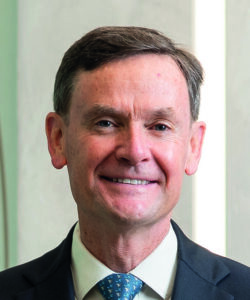Half of UK adults say they feel less certain about their future than two years ago and many are changing their financial habits in ways that could have long-term consequences, according to new research from St. James’s Place (SJP).
The latest Real Life Advice Report, based on a survey of 8,000 people, found that 49% feel more uncertain about their financial future, with one in four describing themselves as “much more uncertain”.
Fewer than one in five (18%) feel more confident than in 2023.
The cost of living and inflation are the main drivers (76%), followed by global events such as the war in Ukraine and conflict in the Middle East (57%), wider economic uncertainty (56%) and the political climate (48%). Almost half (45%) are worried about government support for pensions, welfare and long-term care.
DELAYING BIG DECISIONS
That uncertainty is spilling into day-to-day financial decisions. Among those who feel less certain, 41% have cut non-essential spending, 18% have dipped into savings, and 12% have taken on debt to cover expenses. A quarter (23%) are shoring up savings or investments, while 13% have delayed big decisions such as buying a home or switching jobs.
The report also highlights the growing gap between those who take financial advice and those who don’t. Over half (51%) of advised individuals said they felt optimistic about the rest of 2025, compared with just 34% of those without advice. Some 85% of the advised group say they are on track with their savings and investment goals, versus 65% of the non-advised.
SECURE FUTURE

Mark FitzPatrick, Chief Executive of SJP, says: “Periods of uncertainty, especially when major or unexpected events happen, are unsettling. Professional advice can be invaluable in helping people navigate these moments.”
SJP is calling for greater access to advice, reforms to close the “advice gap”, and more emphasis on financial education to ensure the next generation is better equipped to make long-term decisions.
FitzPatrick adds: “Government, regulators and the industry all have a responsibility to ensure people can access the right support to build a more secure financial future.”








